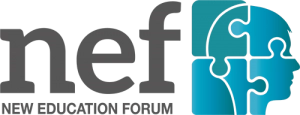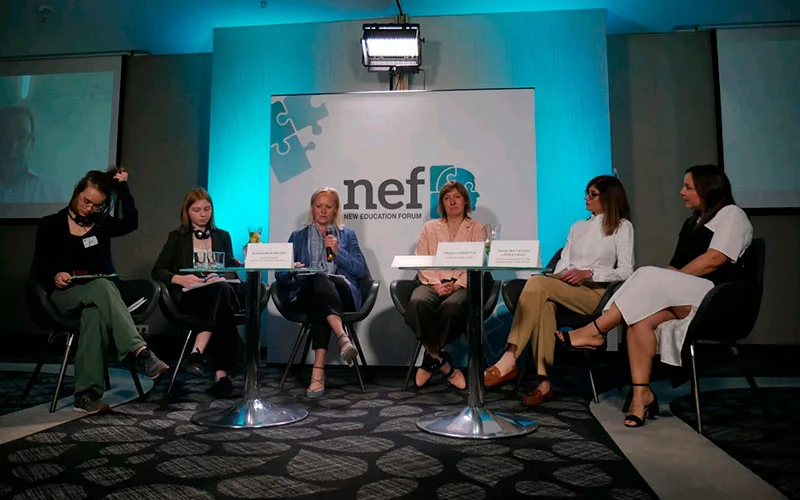On May 25, 2022, another edition of the New Education Forum, NEF Warsaw, took place at the Airport Okęcie hotel, entitled “Strengthening VET in the crisis context” – disseminating the results of the NEF + project. Experts who participated in the event focused on 3 main topics:
- Soft skills and employers’ expectations vs. education possibilities.
- School in the crisis circumstances.
- Attractive learning: digital and gamification tools in practice.
All the above topics were discussed in 3 discussion panels in which we hosted experts from 8 EU countries, including teachers and students. The aim of the event was to share the produced results of intellectual work. The event was attended by people who are close to the subject of the Outdoor Learning (OL) method and broadly understood education. Our experts informed the participants about the idea of the NEF + project, as well as explained the principles of the online repository (which is the result of intellectual work in the project) and encouraged participants to apply and share content in the NEF + network. During the networking talks that took place between the panels, the guests could learn from experts and share their good practices in schools or vocational education and training institutions.
The conference was opened by Jerzy Buzek, Member of the European Parliament, and member of the Idustry, Research and Energy Committee, who supports CIE from the very first moment when the NEF idea was born. Jerzy Buzek, by engaging in CIE activities and the NEF initiative for many years, promotes OL at the regional and European level. Joanna Bochniarz, president of the CIE foundation, which is a pioneer in implementing the OL method in Poland, also took the floor.
During the first panel, the discussion focused on the role of schools in the refugee crisis and on soft skills that are necessary in employment, active citizenship, and personal development. Experts put emphasis on promoting the innovation of the OL method to develop transversal competences for VET. Participants of the event could hear about the challenges faced by teachers in the everyday functioning of the school in extreme conditions, in particular such challenges as: the language barrier of students and parents in the communication process, responsibility, or the adaptation process.
The second panel raised a serious problem – the lack of qualified employees on the labor market with hard competences that a young person does not have. During the discussion, an important conclusion was made that business should be involved in educational activities. It is also the time to increase the number of available internships for students or internships so that young people can have contact with experts and can verify the acquired knowledge in practice. In addition, we looked for feedback during discussions from the European institutions on how our local activities could be supported through mechanisms at the European level.
The pandemic has reinforced the need to transfer science to a digital environment. The European Commission’s Vocational Education and Training Unit, DG EMPL, gave us practical insight into how we can further implement these European best practices. The discussion was led by the world expert of the OL method, Dr. Jule HILDMANN, Senior Research Fellow at the University of Edinburgh. Dr. Hildmann in the interview emphasized the value of discovering and developing soft skills thanks to the use of the OL method. She said: “during a few days’ undisturbed wandering in nature, you strengthen your communication and leadership skills, you integrate with other people, as well as increase your internal motivation and thus you are more willing to face new challenges and you are more open to changes”.
In the summary of the event, Tomasz Frankowski – Member of the European Parliament, CULT Committee spoke, who drew our attention to the many challenges faced by teachers, students and parents and how much educational changes are needed to adapt to the new, global, digital and a more sustainable future. The pan-European education system should, through a series of reforms, open to modern teaching methods with a greater emphasis on transversal competences such as digital skills, teamwork, and creativity. In addition, Member States need to implement targeted employment policies that ensure a decent standard of living, fair wages, and a more employable labor market, including vocational education and training.
More information about the event can be found at: Event NEF Warsaw 2022

